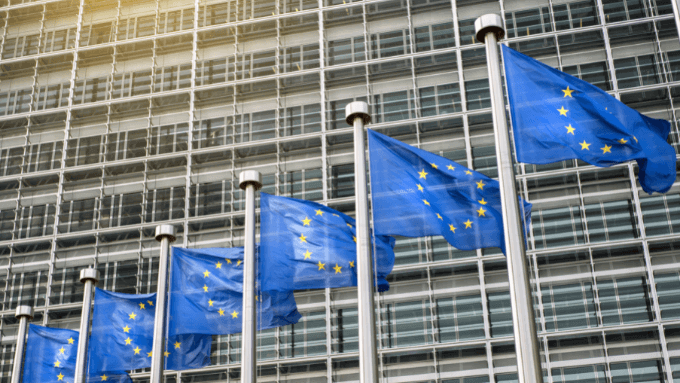Competition Law Concerns Regarding Human Resources Practices
Introduction
Pursuant to Article 2 of the Law on Protection of Competition (“Law No. 4054”), “all agreements, decisions and practices that prevent, distort or restrict competition between any undertakings operating in, or affecting markets for, goods and services within the borders of the Republic of Turkey; abuse of dominance by dominant undertakings in the market; any kind of legal transactions and behaviors that are in the nature of mergers and acquisitions, and which may significantly decrease competition; and transactions concerning the measures, observations, regulations and supervisions aimed at the protection of competition,” are within the scope of Law No. 4054. Under the succeeding provision, which is Article 3, terms and concepts are defined for the purposes of the implementation of Law No. 4054, and the grounds for this article clearly stipulate that while intellectual or physical activities, or activities, which concern both, and are undertaken for a price or benefit, are defined as service. In its largest sense, the definition also includes banking, insurance, money, credit, capital, knowledge and the other elements. Having said that, the same grounds for the same Article also stipulate that “The labor market, where the principle of collective bargaining is accepted, is not included in this definition.” However, the principle of collective bargaining is interpreted as referring to unionization. To that end, in light of past and recent decisions of the Competition Board (“Board”), it is clear that the Competition Authority (“Authority”) considers labor markets within the scope of Law No. 4054.
Competitive Concerns in Labor Markets
Recently, a full-fledged investigation was initiated against 32 undertakings concerning gentlemen’s agreements in the labor markets (“Labor Markets Investigation”). In the announcement regarding the initiation of the investigation, the Authority stated that the market power of employers regarding the labor markets in recent years has led to a decrease or suppression of employees’ wages, and working conditions remain below competitive levels. Within this scope, it is also mentioned that the Authority considers the issues in the labor markets and the benefits of intervening in these issues with competition law instruments, and aims to preserve the competitive structure of the labor markets. However, it should also be mentioned that the Labor Markets Investigation is not the first case file where the Authority has examined human resources practices, such as wage fixing and non-poaching agreements.
When the past Board decisions that examine the issue are evaluated, it is clear that the Authority opines that the competition law aims to protect the buyers and sellers of labor services, just as it aims to protect the free market opportunities of the buyers and sellers of products.[1] There is also a prevailing view that wage fixing and non-poaching agreements between competitors have anti-competitive effects similar to horizontal market allocation agreements, and may indirectly lead to fixed wages by limiting the opportunities for employees to switch jobs in the labor market.[2] Labor is considered as one of the leading costs in the production process and in this context, labor is at the forefront of purchases made by undertakings in the production process. Therefore, it is possible to indirectly distort competition in the goods and services markets through actions and agreements in the labor market.
The natural consequence of these agreements is the limitation on employees’ mobility and the benefits gained by undertakings as a result of this limitation. Employees’ mobility can directly affect the way undertakings operate in the market and, therefore, their market power. As a result, through these agreements, undertakings are able to gain benefits by decreasing their employees’ mobility or suppressing their wages. Through aiming to create a monopsony on the purchasing side of the labor markets, wage fixing agreements between competitors can also reduce the labor costs of the undertakings that are party to the agreement;[3] whereas, non-poaching agreements limit the employees’ opportunities to switch jobs that have higher wages and, thus, suppress an increase in their salaries over a period of time. With these features, the relevant agreements are considered no different from cartels on the buying side of the market by the Authority.[4] It is also underlined in Board decisions that wage-fixing agreements constitute determining purchase prices that clearly aim to prevent competition[5] and that these agreements are no different from price fixing agreements; whereas, non-poaching agreements are no different from customer or market allocation agreements.[6]
In the Özel Okullar Birliği decision, where the issue was examined in detail, the Board evaluated the practices that forbid offers of transfer to teachers between private schools.[7] It was decided that these practices were within the scope of Article 4 of Law No. 4054 and could not benefit from individual exemption, since they were harmful to both consumers and the teachers working in these schools.[8] Similarly, in the BFIT decision, provisions stating that any employees who are employed or were formerly employed by the BFİT or another BFİT franchisee, or who have worked in competitor companies, could not be employed without the prior written approval of the BFİT has been evaluated. In this regard, it was decided that the provision was within the scope of Article 4 of Law No. 4054 and could not benefit from individual exemption, since it restricted competition more than necessary in the labor markets. Consequently, it was concluded that the duration of the relevant provision should be limited with the agreements’ period, the reason for the written approval must be clearly stated, and an opinion pursuant to Article 9/3 of Law No. 4054 must be sent.
Whether the relevant practices lead to a decrease in the quality of the products produced, or the services offered, is also a controversial issue. The more popular opinion suggests that as a result of suppression of wages for employees, labor supply along with production or service delivery may decrease, causing an increase in prices.[9]
To conclude, due to the reasons, above, the Authority deems that it has the jurisdiction to evaluate wage fixing and non-poaching agreements within the labor markets, and to subject them to investigations.
Conclusion
It is clear that the Authority examines certain agreements in the labor markets within the scope of Law No. 4054. Popular opinion exists that where wage fixing agreements are executed between competitors, they become a structure similar to that of cartels on the buying side; whereas, non-poaching agreements lead to restriction of employees’ mobility and, therefore, allow the undertakings to benefit. The fact that the relevant agreements do not benefit consumers in any way and, therefore, cannot benefit from individual exemption under Article 5 of Law No. 4054 is also another point often noted in Board decisions.
[1] The Board’s İzmir Konteyner decision dated 02.01.2020 and numbered 20-01/3-2.
[2] The Board’s Bfit decision dated 07.02.2019 and numbered 19-06/64-27.
[3] The Board’s Bfit decision dated 07.02.2019 and numbered 19-06/64-27, para 45.
[4] The Board’s İzmir Konteyner decision dated 02.01.2020 and numbered 20-01/3-2, para 32.
[5] The Board’s Dizi Oyuncuları decision dated 28.07.2005 and numbered 05-49/710-195.
[6] The Board’s İzmir Konteyner decision dated 02.01.2020 and numbered 20-01/3-2.
[7]The Board’s Özel Okulları Birliği decision dated 03.03.2011 and numbered 11-12/226-76.
[8]The Board’s Özel Okulları Birliği decision dated 03.03.2011 and numbered 11-12/226-76.
[9]The Board’s İzmir Konteyner decision dated 02.01.2020 and numbered 20-01/3-2, para 31.
All rights of this article are reserved. This article may not be used, reproduced, copied, published, distributed, or otherwise disseminated without quotation or Erdem & Erdem Law Firm's written consent. Any content created without citing the resource or Erdem & Erdem Law Firm’s written consent is regularly tracked, and legal action will be taken in case of violation.
Other Contents

Mergers and acquisitions are among the types of transactions that are subject to intensive scrutiny by competition authorities. As a rule, competition authorities only subject transactions that exceed certain turnover thresholds and result in a change of control to merger…

The U.S. District Court for the District of Columbia (“Court”) issued its memorandum opinion (Memorandum Opinion) on November 18, 2025, in the antitrust case (“Case”) between the Federal Trade Commission (“FTC”) and Meta Platforms Inc. (“Meta”). The FTC alleges that Meta monopolized the market…

No-poach agreements, which have become one of the most prominent concepts in global competition law in recent years, are defined in the Glossary of Competition Terms as “agreements, whether direct or indirect, whereby one undertaking agrees not to make job offers to, or hire, the employees of another...

The Competition Board (“Board”) has broad powers to request information from undertakings. The legal basis for this authority is provided by Article 14 of Law No. 4054 on the Protection of Competition (“Law No. 4054”). Under this provision, the Board may request any information it deems necessary from public...

Competition authorities around the world have increasingly focused on labor market infringements under competition law, issuing new regulations and guidance recently. Notable examples include the U.S. Department of Justice and Federal Trade Commission’s joint guidance, the Japanese Fair Trade Commission’s...

Chapter 8 of the General Data Protection Regulation (“GDPR”) sets out the legal remedies available to data subjects in the event of a breach of their rights under the GDPR. Accordingly, each data subject has a right to lodge a complaint with the supervisory authority of the Member State in which they reside, work...

Mergers and acquisitions play a critical role in shaping the competitive structure of the market. Although such transactions can lead to positive outcomes such as the provision of products and services at lower prices, the development of new products and technologies, and improvements in quality, they may also...

Technology and the opportunities it brings undoubtedly play a key role in strengthening the competitiveness of market players. In this context, pricing algorithms that enable undertakings to monitor publicly available prices and optimize their own pricing strategies have become widely used, especially by digital platforms...

The Regulation on Fines to Apply in Cases of Agreements, Concerted Practices and Decisions Restricting Competition, and Abuse of Dominant Position (“Former Regulation on Fines”), which entered into force upon its publication in the Official Gazette dated February 15, 2009 and numbered 27142, was...

In the past years, the Turkish Competition Board (“Board”) has closely monitored the activities of undertakings operating in the retail sector. As a result of the Board’s record of administrative fines, horizontal type of violations in the retail sector have been highly publicized. Vertical violations such as resale price...

In recent years, numerous automobile manufacturers have announced their goals to reduce carbon emissions, with many brands setting net-zero carbon targets spanning from production processes to the lifecycle of their vehicles. While ongoing debates persist regarding the significantly higher carbon footprint of...

Under Article 15 of Law No. 4054 on the Protection of Competition (“Law No. 4054”), the Competition Board (“Board”) may conduct on-site inspections at the undertakings’ premises when it deems necessary in fulfilling the duties assigned to it. During the on-site inspection, the Board is authorized to examine all...

Agreements and information exchanges between undertakings in labor markets have recently been examined in various preliminary investigations and investigations initiated by the Turkish Competition Authority (“Authority”). Following the investigations in which some undertakings were subject to...

The Turkish Competition Board’s (Board) decision regarding the acquisition of the international road transport business line of Ekol Lojistik AŞ (Ekol) by DFDS A/S (DFDS) has been one of the most prominent transactions on the competition law agenda recently...

The Competition Board (“Board”) has broad powers to request information from undertakings. The Board’s authority to request information arises from Article 14 of the Law No. 4054 on the Protection of Competition (“Law No. 4054”). Under the relevant provision, the Board may request any information it deems...

Doğuş Otomotiv Servis ve Ticaret A.Ş. (Doğuş) applied to the Turkish Competition Authority for an exemption for the practice of recommending basic wages to be applied to sales and after-sales service employees of its authorized dealers and distributors...

Access to Instagram was blocked ex officio by the Information and Communication Technologies Authority (ICTA) as of 2.08.2024. Under Article 8 of Law No. 5651 on the Regulation of Publications on the Internet and Combating Crimes Committed Through These Publications, ICTA can issue an ex officio access...

It is well known that agreements between employer undertakings with regards to their employees, such as wage-fixing and non-poaching agreements, along with competitively sensitive information exchanges have been under the scrutiny of competition authorities all over the world, including the Turkish Competition...

Automotive is one of the sectors in which the world’s most significant investments are made. The Competition Board (“Board”) has been closely interested in the automotive sector over the years and has conducted various examinations and studies in this field...

Competition authorities around the world continue unabated to investigate competition concerns arising from data collection and processing activities of digital platforms and impose severe sanctions as a result...





The startup ecosystem in Turkey has experienced notable growth in recent years. In the last quarter of 2023, 81 startups secured a combined investment of around 60 million dollars. While the number of investments remained consistent when comparing the third quarter periods of 2022-2023, there was a decrease...

Hub and Spoke cartel is a type of violation that is not clearly defined and regulated under Law No. 4054 on the Protection of Competition (“Law No. 4054”). Decisional practices of foreign competition authorities, particularly the UK Competition and Markets Authority’s decisions (“CMA”), are instructive concerning...

The Competition Board ("Board") made an addition to its line of decisions on resale price maintenance with its decision on Sunny Elektronik Sanayi ve Ticaret A.Ş. ("Sunny") . In its decision, the Board thoroughly examined the allegations regarding Sunny's involvement in maintaining resale prices and restricting...

It is observed that the Competition Authority (“Authority”) has recently scrutinized various industries such as fast-moving consumer goods, labor market, pharmaceuticals, and cement. When the reasoned decisions of the Competition Board (“Board”) published in October are examined, it can be seen that the...

Jules Verne says, “Everything on earth has a limited lifespan, nothing that will exist forever can be created by human hands”. Perhaps change is the only constant concept in all our lives. Despite two major world wars and countless periods of crisis, humanity has been undergoing a great change and...

At the meeting of the Fédération Internationale de Football Association (“FIFA”) held on 16 December 2022, the FIFA Council approved the FIFA Football Agents Regulations (“FFAR”). In the FFAR, various amendments have been made, such as the introduction of a maximum service fee limit that football agents are...

Resale Price Maintenance (RPM) is still considered a hardcore restriction under the recently revised Vertical Block Exemption Regulation (VBER), which means that it cannot benefit from a statutory exemption under Article 101(1) TFEU, unlike certain other types of vertical agreements. However, it has been debated...

In competition law, it is important to accurately determine the concept of undertaking, especially in terms of mergers and acquisitions. Therefore, the concept of economic entity aims to reveal the economic units covered by the undertakings. The relationship between the concept of economic entity and family ties comes...

In these days when the Competition Board (“Board”) frequently imposes administrative fines for preventing on-site inspections and both the Competition Authority (“Authority”) and undertakings take legal and technical measures regarding on-site inspections, a striking development has occurred. In its decision...

Online advertising has become an important source for businesses for promoting products and services and meeting consumers, as a result of the rapid development of information technologies and increase in the use of internet. Delivering targeted messages to consumers at the right time through the digital...

Selective distribution systems refer to a type of distribution system in which suppliers commit to selling the contracted goods or services directly or indirectly to distributors selected based on specified criteria, while the distributors commit not to sell the said goods or services to unauthorized...

Fast-moving consumer goods is undoubtedly one of the sectors that the Competition Authority has been working most intensively since the COVID 19 pandemic. Among the most important developments of this period was the Sector Inquiry initiated on Fast Moving Consumer Goods (“FMCG”) Retailing...

In the decision of the Constitutional Court ("Constitutional Court" or "Court") dated 09.11.2022, numbered 2020/67 E. 2022/139 K. (the "Decision"), the annulment of certain articles of the Law Amending the Law on the Protection of Competition No. 4054 ("Law No. 7246") was requested...

In Turkish competition law, certain types of mergers and acquisitions are subject to Turkish Competition Board’s (“Board”) approval in order to gain legal validity. Pursuant to Article 7 of the Law No. 4054 on the Protection of Competition (“Law No. 4054”), the Board is competent to define mergers and acquisitions...

Recently, the Competition Board (the Board) had imposed administrative fines on banks and financial institutions for failing to respond to the request for information within the scope of a preliminary investigation.[i] The request for information that lays the groundwork for the administrative fine imposed by...

Amazon, a world-famous company, is an e-commerce company that operates the world’s largest online shopping platform. In the backstage, Amazon is a data-driven company whose retail decisions are mostly driven by automated systems, fueled by the relevant market data. That being said, Amazon has a dual...

The right to make on-site inspections is one of the Competition Board’s (“Board”) most important tools for revealing whether Law No. 4054 on the Protection of Competition (“Law No. 4054”) has been violated. The effective use of this authority is quite important in terms of obtaining fruitful results from...

“Harese” is an interesting Arabic word. There is a thorn that camels love very much in the desert. The camel eats the thorn with great greed. So much so that, its mouth bleeds as it eats, but it doesn't stop eating. The taste of the thorn is mixed with the salty taste of its own blood. This mixed taste drives the camel...

Turkey’s leading pay television service provider, Krea İçerik Hizmetleri ve Prodüksiyon A.Ş. (“Digiturk”), is frequently the subject of complaints made to the Competition Authority (“Authority”). In fact, the Competition Board (“Board”) issues a new decision about Digiturk almost every year. In these decisions...

The French Competition Authority (Autorité de la Concurrence), within the scope of the competition law proceeding initiated upon the complaint of Criteo SA (“Criteo”), accepted the commitments proposed by Meta Platforms Inc., Meta Platforms Ireland Ltd., and Facebook France...

While the scope of Competition Board’s (“Board”) power to conduct on-site inspections has increased with the introduction of Guidelines on Examination of Digital Data during On-site Inspections (“Guidelines”), nowadays the amount of monetary fines imposed on undertakings continue to...

The hub and spoke cartel, which is a relatively new type of violation in terms of Turkish competition law, is defined as the indirect exchange of information between two independent undertakings which are horizontal competitors on the supplier or retailer level, through another undertaking...

The settlement mechanism has only recently been introduced to Turkish competition law practice. It entered into force with the amendment made to the Law on the Protection of Competition (“Law”) numbered 4054 on 16.06.2020, and has been in effect for less than two years. In this relatively...

Due to their increasing share in the economy and rapid growth rate, e-marketplace platforms have come under the increasing scrutiny of the Turkish Competition Authority (“Authority”) as well as many competition authorities around the world...

Pursuant to the Amendment Communiqué Concerning the Mergers and Acquisitions Requiring the Competition Board’s Approval (“Amending Communiqué”) published in the Official Gazette dated March 4th, 2022 and numbered 31768, certain amendments have been introduced...

The Competition Board (“Board”) has recently published a reasoned decision in which it evaluated BSH Ev Aletleri Sanayi ve Ticaret A.Ş.’s (“BSH”) request for negative clearance or exemption with regard to its practice of prohibiting authorized dealers from making sales through online marketplaces...

Shahmaran, a Mesopotamian myth, is believed to take place in Tarsus. According to the myth, the shah of snakes is the immortal and omniscient "Shahmaran." Shahmaran is described as a beautiful woman living in her cave with her snakes...


During the COVID-19 pandemic, competitive concerns about the pricing behavior of chain markets, manufacturers, and wholesalers engaged in the retail trade of food and cleaning supplies led to an investigation by...

When the past decisions and the recent decisions of the Competition Board (“Board”) are examined, a significant increase can be observed in the number of decisions where the Board found hindrance or obstruction of on-site inspections. This situation shows that...

The European Commission began investigating the collusive behavior of Credit Suisse, UBS, Barclays, RBS, and HSBC in the Foreign Exchange (forex) spot trading market in 2019. With the recent press release dated 02.12.2021, the Commission announced that the case is now closed...


Digitalization, in particular, necessitates the rewriting of competition law rules. Competition law is at the center all questions regarding e-commerce and digital platforms. The aforementioned platforms, which have become prominent due to innovations in...
















































